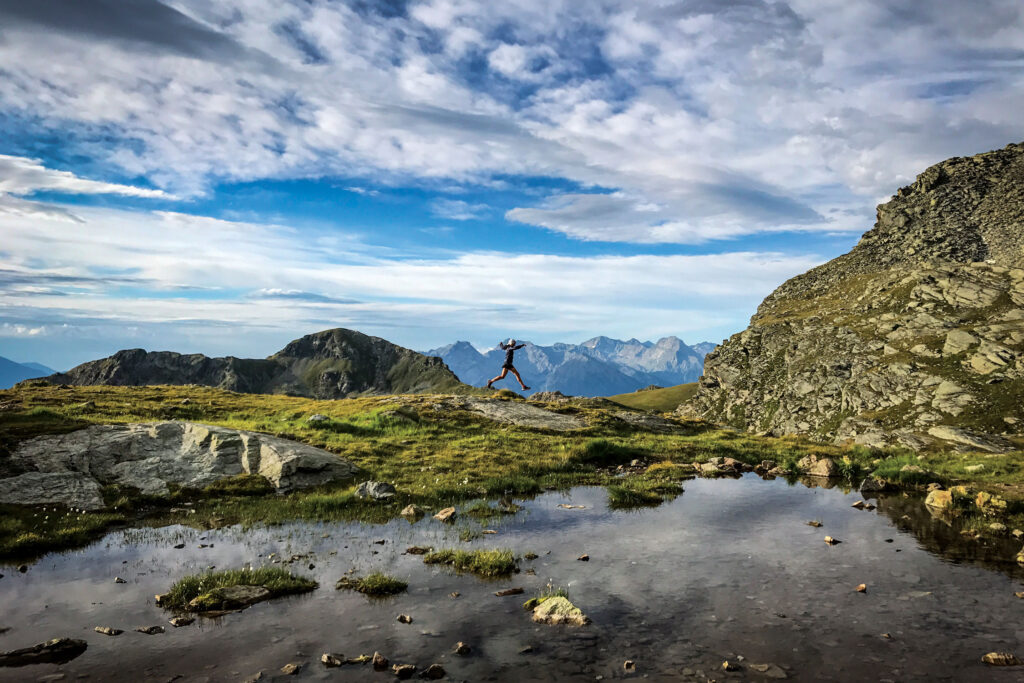Advertisement
Free to Run
Stephanie Case is transforming women’s lives, one ultramarathon at a time

It’s 50 degrees Celsius in Kabul, Afghanistan. That doesn’t stop Canadian ultrarunner Stephanie Case. She pushes forward, dragging a tire behind her under the relentless sun. She’s training for her next long-distance run, a run that criss-crosses her life, her work, and her passion for women’s equality.
Advertisement
A tiring task
“Afghanistan is very close to my heart,” says Case, who serves as the United Nations’ Head of Protection of Civilians and Child Protection in Kabul. While she was in law school at the University of British Columbia, women’s rights were an important issue for her. “I was drawn to Afghanistan,” says Case. “I’d seen images and read stories about how women were treated here during Taliban times.”
Her first UN deployment to Afghanistan began back in 2012. “I wanted to learn more about what Afghan women were facing, how they were coping, what their dreams were, and how I could support them,” says Case. “It changed my life forever. I thought I would be here for only a year, but it has turned into a lifelong connection!”
It’s a connection full of opportunities, but also challenges, especially for any ultrarunner who would otherwise log 40+ km on an average training run. That’s something Case simply can’t do when limited to a secure, armed compound. Hence the tire she’s dragging. It builds endurance. She’ll need it, both in her races and metaphorically in her life’s work.

How far is “ultra”?
Most runners classify an ultrarun as anything over 50 km (31 mi). Common ultrarunning distances include 100 km (62 mi) and 161 km (100 mi). It’s also sometimes based on time, such as 12-hour races or six-day races.
Advertisement
The challenge is the cause
Case is clearly no stranger to challenging difficulties. And while human rights and ultrarunning may seem worlds apart, for her there’s a common thread.
“Everything I do in life, whether it’s my work, [my nonprofit] Free to Run, or my ultrarunning, is outside of my comfort zone,” she explains. “I take on challenges that I really don’t think I can actually achieve. You have no idea what you are capable of until you try. Anything I’ve been scared to do has ended up being worth it, so I just try to remind myself of that.”
Last year’s Tor des Géants race—330 km (205 mi) long with a 24,000 m (78,700 ft) elevation gain that some have called one of the world’s hardest runs—was the perfect example.
She’d run it twice, placing second in 2016. Last year was another story: Case had nearly died in a New Year’s running accident, surviving with six broken ribs, a punctured lung, and severe liver laceration.
Determined not to be held back, Case resumed training for Tor des Géants a month after her accident. Then came the actual ultrarun.
“I battled mental doubts and difficult physical challenges during the race,” says Case. She was 20 km (12 mi) away from the finish line when a storm triggered memories of her accident. “I had a complete meltdown, and I wasn’t sure I could continue,” she says.
At the time, she was in third place. Her doctors told her to drop out. “That was all it took to motivate me to finish,” she laughs, “and I stumbled my way to the end.”
She ended up finishing fourth. “I’m prouder of that finish than the second place the year before,” says Case. “The battles we fight and push through are worth so much more than the battles we never have to encounter.”
And Case’s current battle? Women’s equality and freedom in Afghanistan and around the world.
Advertisement
Advertisement
Freedom to run
Case was drawn to Afghanistan to fight for the plight of women. Today, that passion meets her love of running.
“I knew I wanted to do something that would provide Afghanistan’s women and girls with the same opportunities to experience outdoor adventure and freedom that I had,” says Case. “I founded Free to Run in the strong belief that sports have the ability to completely transform lives and communities for the better.”
Her organization uses running to build women’s and girls’ physical, emotional, and social well-being. The newfound confidence helps these women develop into community leaders so they can bring people together across cultural, ethnic, and religious lines.
“We provide them with the tools to succeed, and support them to transfer those successes to their everyday lives,” says Case. “We believe women can and will be a force for positive change.”
Free to Run is now active in several Afghan provinces, and Case is already seeing the impact.
“When I met Nelofar, she was not a runner or an athlete, but she signed up with us for the chance to train for a 250 km (155 mi) run in China,” recalls Case.
“Everyone thought it was impossible, but Nelofar taught me to dream big,” says Case. “Not only did Nelofar finish the race, but she went on to establish a running group for over 20 young women and girls in her home province. Nelofar is working for us as a program officer, and I have seen how she has changed through her involvement in sports. She’s fearless, determined, and confident.
“As one participant described, running has allowed her to make plans for her future. Before Free to Run, she just focused on getting through each day. After she started sports, she looked ahead to what was coming next. It’s incredible to see how something as simple as running can change how people approach every aspect of their lives.”
Advertisement
Case’s track record
Case has competed in nearly 40 races, and finished in the top five in half of those. “It’s a neat statistic, but my performances aren’t that important to me,” says Case. “I cherish my experiences, not my results. I’m more proud of my blowup at the Tor des Géants last year than any podium spot I’ve achieved.”
How you can help
“We rely on runners around the world to raise funds and awareness for our cause, and it makes a huge difference,” says Case. “It’s special for runners to support other runners to have the same opportunities that they do. Anyone interested can reach out to us at info@freetorun.org.”
Rewards of the run
Stephanie Case has lived in many conflict areas, including South Sudan, where her field site hosted 100,000 people displaced by the country’s civil war. “It was a level of suffering I hadn’t experienced before,” recalls Case.
Running was her outlet as she struggled to deal with the emotional challenges of the role.
“As I ran through the bush, children in the area would run away crying,” says Case. She couldn’t figure out why they were so scared of her, until someone explained that South Sudanese children are taught that when they see someone running, they’re running from violence.
“I couldn’t believe that my own running, which I was doing to help myself cope, was causing more stress and anxiety for others,” says Case. “After I spent more time with the children, they began to join me!
“Our moments laughing and running through the bush have really stuck with me. It was incredibly touching to share this experience. Despite everything they were facing, they were able to be children for a few moments on those runs. It taught me a lot.”







